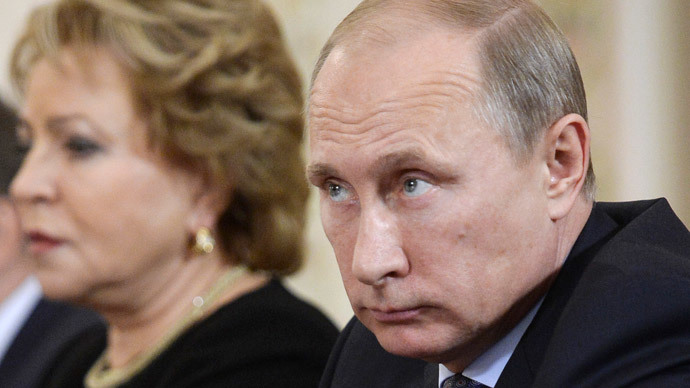Putin labels Trans-Pacific Partnership US attempt to benefit from regional trade

Ria Novosti | 6 November 2014
Putin labels Trans-Pacific Partnership US attempt to benefit from regional trade
MOSCOW, November 6 (RIA Novosti) — The Trans-Pacific Partnership represents Washington’s bid to establish new trade and economic cooperation specifically for its own benefit, Russian President Vladimir Putin told China’s main media outlets in a Thursday interview.
"Obviously, the Trans-Pacific Partnership is just another U.S. attempt to build the architecture of regional economic cooperation that the USA would benefit from. At the same time, I believe that the absence of two major regional players such as Russia and China in its composition will not promote the establishment of effective trade and economic cooperation," Putin argued.
The president added that evaluation of the TPP progress is complicated due to the closed nature of the talks.
"This initiative is carried out behind closed doors, even businesses and the public of the contracting states have no access to it, let alone other countries. Over the past five years of negotiations, we have repeatedly heard about the success achieved, but such statements have always been refuted later," Putin said.
Asked whether Washington seeks to counter growing Russian and Chinese influence in the region with the TPP project, Putin stated "the free trade agreements should not fragment the multilateral trading system, but rather complement it," stressing that "the regional unions should not be turned against each other or otherwise divided."
The Trans-Pacific Partnership is a proposed regional free-trade agreement. As of 2014, 12 countries, including the United States, Australia, Canada, Japan and Singapore, have participated in talks on the projected deal.
According to the United States Trade Representative Office, the potential signatories to the agreement account for 40 percent of the world’s GDP and about one-third of global trade.





